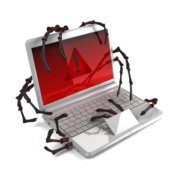BBQ Safety for holiday home owners
Last Updated on May 29, 2009 by admin
BBQ Safety for holiday home owners. Barbecue summer or not, if you provide a BBQ for your guests to use at your holiday home you would be wise to give this consideration in your risk assessment and provide some safety guidelines for your guests.
You may wish to consider some of the following tips:
Many people are injured each year because they did not take a few simple safety measures. The following guidance will make sure that your barbecue is a SAFE success:
- Ensure that the barbecue itself is stable and located on level ground
- If there is a wind blowing, make sure that the wind is blowing away from you when you light the barbecue (just in case it flares up).
- Ensure that you are not wearing any loose clothing that could flap onto the lighted barbecue and ignite.
- Keep the barbecue well away from overhanging obstructions such as tree branches, and keep a safe distance from fences, etc.
- Under no circumstances use any flammable accelerant (such as methylated spirits, paraffin or petrol) that has not been recommended by the manufacturers.
- Should you choose to use lighting fluid, the manufacturer’s instructions must be adhered to.
- DO NOT SPRAY THE LIQUID ONTO A LIGHTED BARBECUE.
- When lighting the barbecue, do so at arms length (rather like Fireworks) and do not put your face over the range.
- Keep children away from the barbecue when lighted and after cooking has finished, as it may still be hot.
- Dispose of the charcoal safely after the barbecue has cooled completely.
- Keep a bucket of water, sand or garden hose nearby in case of accidents.
- Once lit, never leave a BBQ unattended.
Gas Barbecues
- Always check the condition of all pipes and connections before lighting.
- Make sure that the barbeque controls and cylinder are turned off fully before changing the cylinder.
- If possible always change cylinder in the open.
- Do not keep more spare cylinders than you require.
When you have finished with a bottled gas barbeque, turn off the gas cylinder before the barbeque controls, this ensures that any residual gas in the pipeline is used up.
- If a gas leak is suspected check connections and pipes for leaks by brushing with soapy water and looking for bubbles. Tighten but do not over tighten joints. If unsure do not use and seek specialist advice.
Beware – many BBQ accidents and injuries have occurred as a result of drinking alcohol. Don’t cook and drink.
FOOD SAFETY HYGENE TIPS
- Buy food from reputable suppliers and ensure it is fresh
- Wash salads and raw vegetables well to remove surface contamination. Do not prepare these foods too far in advance.
- Cleanliness is important – make sure you wash your hands thoroughly and keep them clean at all times
- Thoroughly clean out the barbecue removing any food memories of last summer
- Defrost meat and poultry before cooking them
- Keep raw and cooked foods apart and use separate utensils for each to prevent the transfer of germs
- Don’t add sauce or marinade to cooked food if it has already been used with raw meat
- Never put cooked food on a plate or surface that has been used for raw meat.
- Cook food one batch at a time
- Keep all meats and perishable foods refrigerated until you are ready to use them . If food can’t be kept in a fridge then place them in a cool bag or box with ice packs.
- Barbecue meat thoroughly until the juices run clear and no pink bits remain
- Check food is piping hot before serving
- Keep serving bowls covered to protect them from dust, insects and pets.
- Eat food as soon as it is ready and throw away any leftovers.
- Remember: Meat that is burnt on the outside does not mean that it is cooked on the inside. If possible pre-cook chicken and sausages then transfer straight to the barbecue for that barbecue taste. When you reheat food on the barbecue, always make sure it’s piping hot all the way through before serving.
For other informative articles check out these blog posts of interest to holiday home owners. They contain information and guidance to challenges faced by you whilst managing your holiday home, holiday cottage complex or holiday apartments.
For further information on UK holiday home insurance visit the website page most relevant to you:




Leave a Reply
Want to join the discussion?Feel free to contribute!